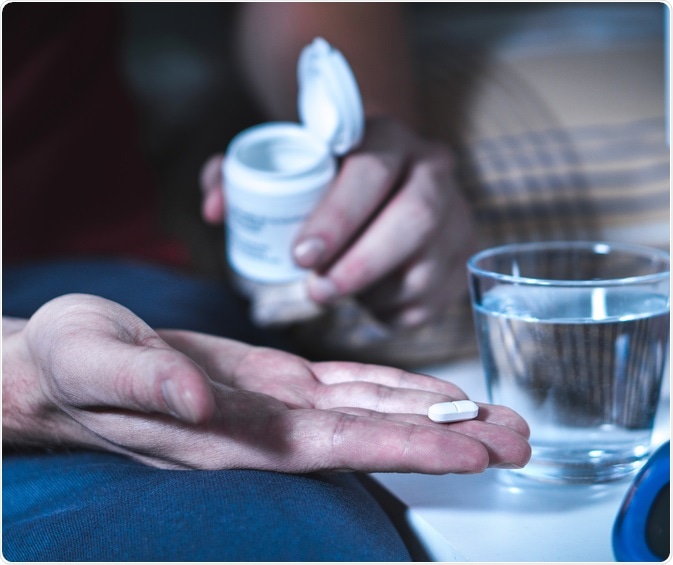
According to the experts this is a large study called the Hygia Chronotherapy Trial, proves the effects of taking antihypertensives at bed time. This Spanish study included over 19,000 individuals on medication for high blood pressure. There were a total of 19,084 Spanish Caucasian participants with high blood pressure and of these 10,614 were men and rest were females.
The average age of the participants was 60.5 years. The patients were put into two groups randomly and one of the groups took the pills in the morning (9,532 participants) while the other took it at bed time (9,552 participants).
These participants were then followed up for a period of around 6 years. Results showed that those who were taking their medication before bed time had halved their risk of dying from heart attacks, stroke or heart failure. Over the period of follow up there were a total of 1,752 participants who experienced heart attacks, heart failure, stroke, needed coronary intervention or died due to cardiovascular disease.
According to the researchers there is a natural drop in blood pressure during sleep. The risk of heart attacks and strokes remain if the pressure does not dip and remains high throughout the night. If the BP medication is taken at bed time, they wrote, the pressure remains controlled during the night and the risk of heart attacks and strokes is decreased.
This study showed that the participants taking the medications at bed time had a lower average BP during the day as well as night compared to their counterparts who took them in the morning.
The team also took into account other factors that contributed to heart attacks, strokes and raised blood pressure including age of the patient, gender, smoking status, history of similar events, fall in BP while asleep etc. before they concluded the benefits of taking the medications at bed time. Their results revealed that there was a 56 percent lowered risk of death due to cardiovascular disease, 49 percent lower risk of stroke and 44 percent lower risk of heart attacks if the medications are taken at bed time compared to the other group.
Authors of the study concluded, “Routine ingestion by hypertensive patients of ≥1 prescribed BP-lowering medications at bedtime, as opposed to upon waking, results in improved ABP (Ambulatory blood pressure) control (significantly enhanced decrease in asleep BP and increased sleep-time relative BP decline, i.e. BP dipping) and, most importantly, markedly diminished occurrence of major CVD events.”
Lead researcher Prof Ramon Hermida, from the University of Vigo, in a statement said, “It's totally cost-free. It might save a lot of lives.” He said that physicians need to recommend this to their patients. He added, “Current guidelines on the treatment of hypertension do not recommend any preferred treatment time. Morning ingestion has been the most common recommendation by physicians based on the misleading goal of reducing morning blood pressure levels.”
“The same antihypertensive medication, the same molecule, at the same dose, ingested at two different times have totally different pharmacokinetics and pharmacodynamics and therefore they behave as two totally different medications,” said Hermida. He went on to explain, “The results of this study show that patients who routinely take their anti-hypertensive medication at bedtime, as opposed to when they wake up, have better-controlled blood pressure and, most importantly, a significantly decreased risk of death or illness from heart and blood vessel problems.”
The team called for more studies involving different populations across the globe to see if the same hypothesis was applicable to all patients and also applicable for different BP lowering medications and their brands.
According to Vanessa Smith, from the British Heart Foundation, thus added “Although this study supports previous findings in this area, further research amongst other ethnic groups and people who work shift patterns would be needed, to truly prove if taking blood pressure medication at night is more beneficial for cardiovascular health.” She warned, “If you're currently taking blood pressure medication, it's important to check with your GP or pharmacist before changing the time you take it. There may be specific reasons why your doctor has prescribed medication in the morning or night.”
This Hygia Project is supported by the Ministerio de Ciencia e Innovación, Spanish Government, Instituto de Salud Carlos III, Ministerio de Economía y Competitividad, Spanish Government, Consellería de Economía e Industria, Dirección Xeral de Investigación e Desenvolvemento, Galician Regional Government, Consellería de Cultura, Educación e Ordenación Universitaria, Galician Regional Government, European Regional Development Fund (ERDF) and others declared the authors of the study.
Journal reference:
Ramón C Hermida, Juan J Crespo, Manuel Domínguez-Sardiña, Alfonso Otero, Ana Moyá, María T Ríos, Elvira Sineiro, María C Castiñeira, Pedro A Callejas, Lorenzo Pousa, José L Salgado, Carmen Durán, Juan J Sánchez, José R Fernández, Artemio Mojón, Diana E Ayala, Hygia Project Investigators, Bedtime hypertension treatment improves cardiovascular risk reduction: the Hygia Chronotherapy Trial, European Heart Journal, , ehz754, https://doi.org/10.1093/eurheartj/ehz754






No comments
Post a Comment